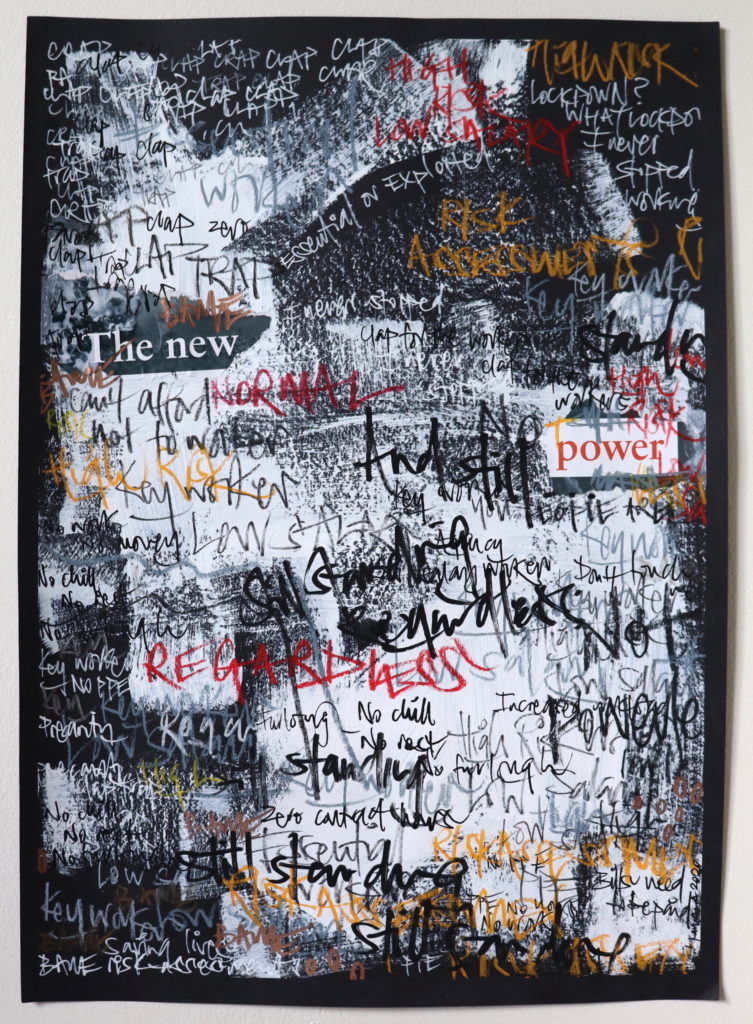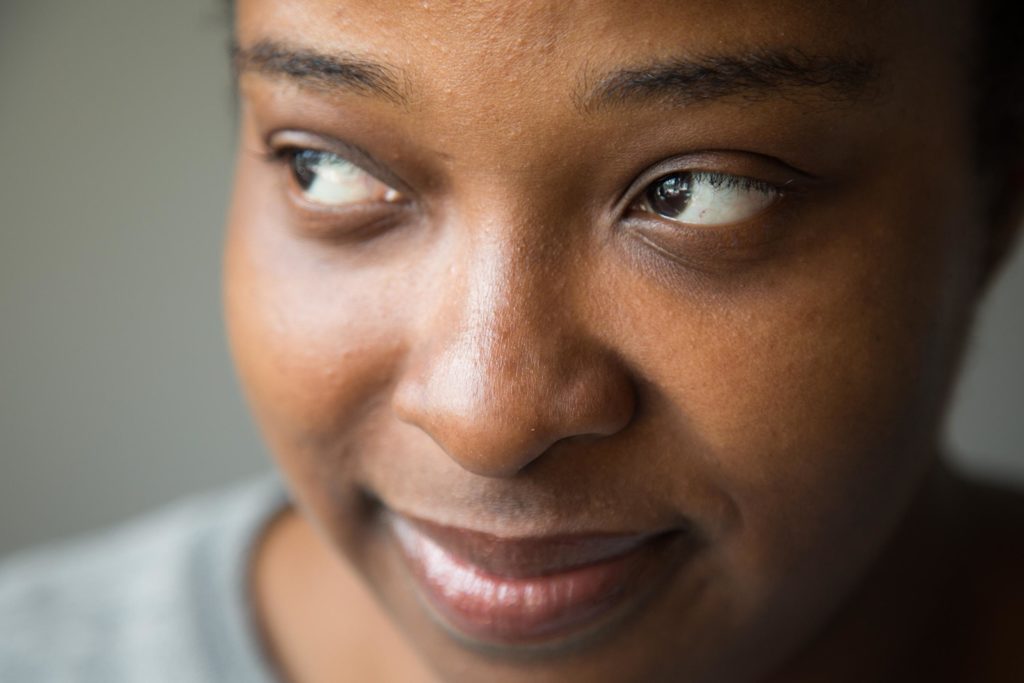The collision of lockdown and the Black Lives Matter activism rebirth we have experienced this summer has made it impossible to ignore the fact that people of colour in the UK and around the world still aren’t considered worth the same level of freedom and justice as white folk. The system is still not only biased, but also built on colonialist and racist principles that consider non-white citizens second-class citizens at best.
Since the beginning of the pandemic, it has been well-evidenced that Covid-19 has hit people of colour hardest when it comes to health. However, it may be less known that women of colour have been far worse affected by poverty and debt during the current crisis:
- 42.9% of WoC said they believed they would be in more debt as a result of the pandemic, compared to 37.1% of white women, and 34.2% of white men. A similar proportion, 42.9% of WoC, said they would struggle to make ends meet over the next three months.
- A quarter of mothers of colour reported that they were struggling to feed their children (23.7%).
- Work-related anxiety for those working outside the home was highest among WoC, with 65.1% of WoC and 73.8% of men of colour reporting anxiety as a result of having to go out to work during the coronavirus pandemic.
- Nearly half of WoC (45.4%) said they were struggling to cope with all the different demands on their time at the moment, compared to 34.6% of white women and 29.6% of white men.
- Over twice as many WoC and men of colour reported that they had recently lost support from the government (42.5% and 48.3%) than white women and white men (12.7% and 20.6%).
- Over half of WoC said that they were ‘not sure where to turn for help as a result of the coronavirus pandemic, compared to 18.7% of white respondents.
Source: Fawcett Society, in partnership with the Women’s Budget Group and academics from the London School of Economics and Queen Mary. Available here.
Tired of trees




Pearl Of The East
Sunflower
Tea For Tower
A Sleeping Flower Never Weeps
The sculpture series “Tea For Tower ” investigates the domestic spaces which many immigrant women occupy in the UK, and also the types of labour that they find themselves doing, often centered around housekeeping and co-habitation with extended family. These works reflect the dynamics and predicaments between family members, friends and partners living in an enclosed space whilst jobs, schools and social life are erased. First hand experience of this gave Yan a new perspective on the lives of her female relatives and ancestors – what shaped their world, and the domestic systems they constructed as a result.
These sculptures also investigate the history of colonialism in western countries. The ways in which tea has been assimilated into British culture and tokenized as a symbol of high class and wealth, has westernized how Chinese immigrant women approach the rituals that come with tea ceremonies. The tea tower takes the form of a pagoda tower that also echoes the shape of an afternoon tea stand, each level occupies a different story of the making of a home to be understood with time.
In the painting “A Sleeping Flower Never Weeps”, the jade cabbages that float around the balcony space of a pagoda tower represent the rituals specific to each immigrant family.
Hope
“Where do we look for hope in the times of crisis? ‘Hope’ shows women from all over the world fighting Coronavirus as carers and protectors of their communities. The collage is derived from a range of sources; online articles, news apps, and stills from social media. Each drawing is rotated 90 degrees before adding a new layer of truth and perspective on the consequences on Coronavirus in other countries. Women in Sudan collect essentials food handouts, a woman in Japan prays with a mask on in an open-air market, a church in South Korea continues worshipping socially distanced and a family in India walk to their hometown with all of their belongings.
Across continents we see women playing a vital role in rebuilding and advocating for their families. A testament to their strength and resilience. Perspective is powerful in the face of suffering and taking time to reflect on the conditions of other women has been an unsettling and challenging thought process for me.”





Regardless
“Many of my family members, like me, are key workers. As such, we all continued to work throughout the Covid-19 ‘lockdown’ period. It became apparent to me not only the disproportionate number of people who worked in these frontline jobs that were BAME, but also that despite being told how invaluable we were in our society, the salaries clearly did not reflect such ranking. There were also issues around providing adequate PPE.
The piece is entitled ‘Regardless’ as I wanted to capture what one care worker told me during the height of lockdown: “I’m gonna have to work regardless because I’m on zero hours and if I don’t go in, I don’t get paid. I don’t qualify for the furlough scheme and I’ve got bills to pay!”. Regardless can be viewed through a number of lenses – starting with the two definitions of the word ‘despite the prevailing circumstances’ and / or ‘without regard or consideration for’.
The collage text in the piece is taken from The Economist magazine, other text includes words taken from U.K. government briefings, social media and conversations with my family members.”
Living in Assemblage through Opacity, Care, and Poetics. A Survival Praxis for NOW.
In these times of global reckoning as a consequence of the lack of care we have shown for our Earth that sustains us, and the siloed way we live together as global citizens. To resist further jettisoning ourselves towards ecological, economic, and social Anthropocene’s, we must expand how we live together, of how our identities, our differences, our sameness can coexist to survive and sustain. We need to be a “We that needs no other” in the words of Sylvia Wynter.
In reflection of the beautiful endeavor Sylvia Wynter put forth, we need to create a survival praxis that establishes how to live in assemblage, or what Édouard Glissant writes about as creolization. We need to activate a process of learning to be with others and to form a community in a holistic manner that is dedicated to caring by respecting Opacity. In the writings of Glissant, Opacity is the right to difference, the disavowal of mundane identity-based transparency that we have been indoctrinated to seek out. Kathryn Yusoff and her work on the revision of the grammar and implications of geology in the wake of industrializing, extractive practices and economies, and capitalism to unpack our arrival at the Anthropocene provides the framework for care. Care is about the intention to relearn and put into praxis the possibilities of being together through difference. Poetics is a way of engaging in dialectics around sustainability and futurity while respecting the right to Opacity.
Poetics is the backbone of assemblage, learning how to communicate through the amplification of relation fostered through the respect of differences. Poetics will be explored through the writing of Alexis Pauline Gumbs where she engages with the process of finding a ceremony that is inspired by Sylvia Wynter’s call for the generative making of being together as a praxis.
Related content
Explore other themes
Get in touch
Powered by
Sheroes is a Lon-art project. Copyright © Lon-art.org 2019. All rights reserved.
About Us
Sheroes is a collaborative project that highlights hidden herstories through the arts.
If you want to support the sheroes cause, please donate. All the money raised will go to running more Sheroes events.
Powered by

Sheroes is a Lon-art project. Copyright © Lon-art.org 2019. All rights reserved.









